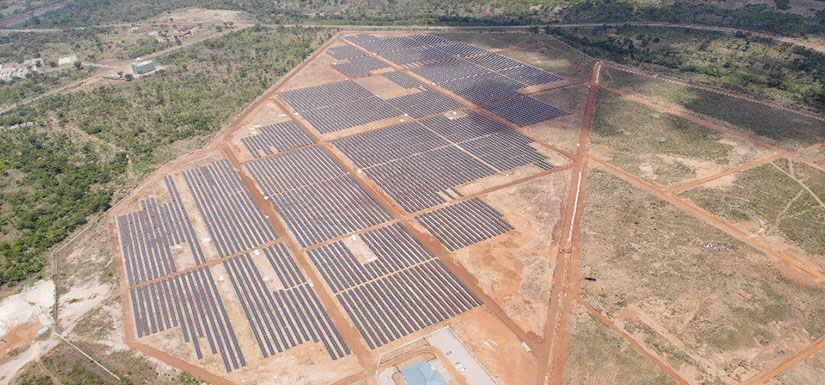Ghana Partnership
The USAID-NREL Partnership is working with Ghana to increase the capacity of its electricity sector and assist in implementing more equitable and sustainable grid solutions.

With the help of USAID and NREL, Ghana is implementing a strategy to meet long-term electricity demand that provides the best balance of cost, reliability, and sustainability priorities. In addition, NREL is providing technical assistance, capacity building, and other support to help Ghana reduce barriers to adoption of energy technology.
Activities
NREL is supporting the Volta River Authority on integrating wind and solar into its electricity mix. Technical assistance is being provided to support Volta River Authority on design and feasibility analysis of wind/solar hybrid systems. Two projects are in development:
- Grid integration: Examination of grid integration options and impacts using medium-voltage CD wind and training Volta River Authority staff on grid integration
- Hybridization of solar and wind: Examination of potential benefits and impacts of solar/wind hybridization.
NREL is also supporting the Ghana Grid Co. by providing advanced modeling for variable solar and wind resources. NREL will jointly develop tools and training for the grid company to analyze investment and technical impacts of renewable energy solutions including distributed photovoltaics and energy storage. NREL’s support will help increase capacity as well as provide enough assistance so the Ghana Grid Co. can initiate future studies independently.
In 2017, the Bui Power Authority in Ghana requested technical assistance from NREL on adding power from solar PV to an existing 400-MW hydroelectric dam to cut greenhouse gases, augment the hydropower, and provide energy diversity. NREL collaborated with the Bui Power Authority to install 50 MW of PV within the hydroelectric dam in 2021, with plans to expand to 250 MW of power. The plant also has a battery energy storage system designed to provide more reliable power. The new capacity will provide enough energy to power approximately 200,000 households. Learn more about this project: Powering Ghana: USAID and NREL Provide Technical Assistance To Develop First Hydro-Solar Plant in West Africa.
"The global challenge of climate change, as well as the need to secure energy supply, makes the development of the hydro-solar plant very important for Ghana and West Africa." —Peter Acheampong, deputy director of renewables at Bui Power Authority
Toolkits Used
Contact
Share
